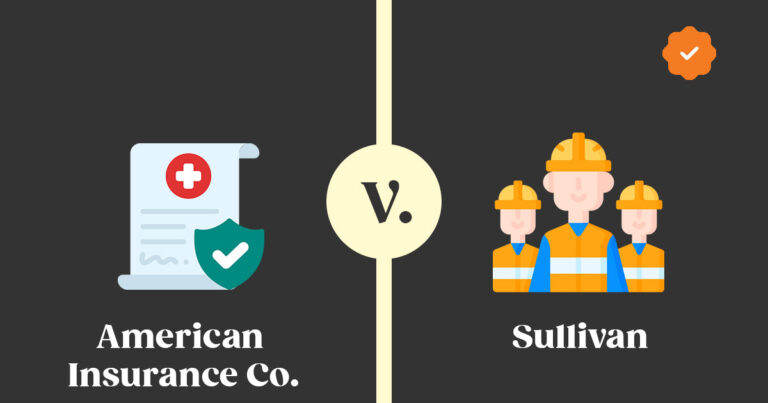Quick Summary
Workers injured on the job in Pennsylvania oppose changes to the state’s workers’ compensation system. The thirty-day payment requirement led to unwarranted claims, increasing employer insurance costs. In addition, employers must pay uncontested medical claims, but if insurers notified the state and arbitrated, they could refuse those claims. After the Third Circuit Court of Appeals found in favor of the workers, the United States Supreme Court granted certiorari.
In a workers’ compensation system, the issue before the court was whether an insurer’s decision not to pay for contested medical care constituted state action.
The court held that the Pennsylvania Workers’ Compensation System does not qualify as “state actors” under the 14th Amendment. This is because the state does not take part in or provide guidelines for the utilization review process. As a result, there is no basis for a claim of entanglement between the state and the insurer.
Rule of Law
Actions performed by private entities that require the consent of the state are not considered to be state actions.
Facts of the Case
In Pennsylvania, injured workers must submit workers’ compensation claims instead of personal injury lawsuits. Pennsylvania’s wounded workers are opposing changes to its worker’s compensation system. These changes require an impartial party to review medical treatment before it’s paid for.
When a claim is made and not contested, the insurer must pay for “eligible” medical care. The workers’ compensation law requiring insurers to pay claims within 30 days led to non-reimbursable unwarranted claims. This raised employer insurance costs. Which allowed insurers to refuse claims if they notified the state and arbitrated any disputes.
The district court dismissed private insurers’ complaints because they weren’t “state actor”. Third Circuit Court of Appeals disagreed, saying “the state has established a complicated and intertwined regulatory system”. The Supreme Court of the United States granted certiorari after the Third Circuit Court of Appeals ruled in favor of the workers.
Issue
Can a private insurer’s decision to deny payment for disputed medical care is considered “state actor” in a state’s workers’ compensation system?
Holding and Conclusion
No.
The state-maintained workers’ compensation system does not infringe upon medical care compensation. If the disputed action of the private insurer has a sufficiently close connection to the state, the private insurer may be treated as a state actor.
However, according to the 14th Amendment, workers’ compensation insurers in Pennsylvania are not considered “state actor”.
Reasoning and Analysis
Respondents assert that insurers should be considered state actor because state regulation encouraged usage reviews and withholding of payments. The insurer, on the other hand, has complete discretion regarding whether or not to withhold payment.
Not only does the state not participate in the utilization review process, but it also does not provide rules for the procedure. Therefore, a claim of entanglement between the state and the insurer cannot be established.
Relevant FAQs of this case
What is State Actor?
A state actor operates in a governmental capacity and is, therefore, subject to the restrictions placed on government by the United States Constitution. The First, Fifth, and Fourteenth Amendments to the United States Constitution prevent the federal and state governments from infringing certain rights and freedoms; as such, the First, Fifth, and Fourteenth Amendments apply to any person working on behalf of a governmental body.
Although the term “government employee” might seem to apply to those who work directly for the state solely, the United States Supreme Court has construed these amendments and statutes passed in accordance with them to include a wide range of people who interact with the government in less direct ways.
For example, there is debate over whether or not private companies that manage public services like police and fire departments in municipalities (sometimes called “company towns”) and correctional facilities (traditionally the responsibility of the state) can be held liable as state actors when they violate fundamental civil rights. The Supreme Court has ruled that individuals can be held to the same standards as states when working with authorities.
The Two Key Components of United States Workers Compensation System Claim.
The two key components of a worker’s compensation claim are injury and work activity.
An injury is a physical condition that is caused by accident at work. This condition may be a broken bone, a cut, a sprain, or a bruise. If an employee is injured on the job, this is a work-related injury and is covered by the workers’ compensation system.
Work activity is any activity that is done that is related to a person’s employment. This may include any time away from work that is related to work, including a trip to the doctor’s office, a court hearing related to a workers’ compensation claim, or a trip to pick up a paycheck.
Who Can Make a Workers Compensation System Claim?
In general, any employee who has been injured on the job can make a workers’ compensation claim. The employee will need to file a claim with the workers’ compensation carrier. This claim can then be used to help receive benefits from the carrier. Workers who are not covered by the WC system, e.g., employees who are covered by an employer’s commercial general liability insurance policy, are not eligible to make a workers’ compensation claim.
References
Was this case brief helpful?
